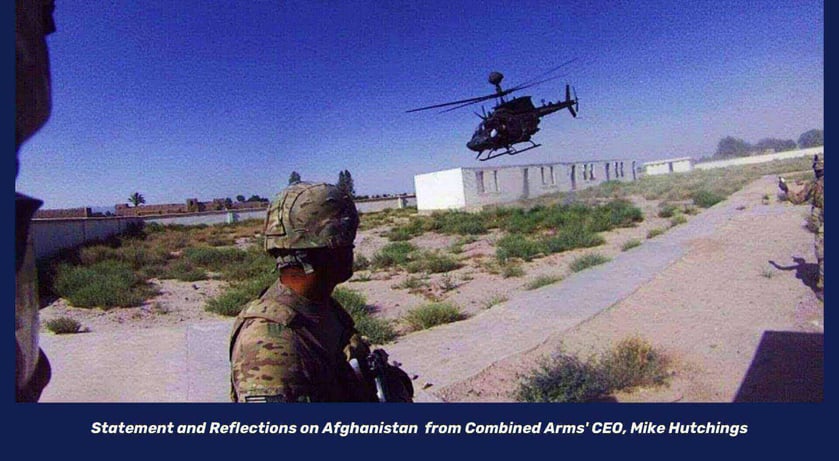In light of Afghanistan’s fall to the Taliban, I find myself at a loss for words, but not emotions. Anger, depression, uncertainty, hopelessness, and anxiety - to name a few. Thoughts back to the grape rows of Zhari District, complete with coloring book contests with the local kids, chai and naan sit downs with village elders, and pre-combat patrol jokes with LT. Ahkmed (one of the greatest and bravest Afghan warriors I fought beside), on one hand, and firefights, IEDs, and fear on the other.
One of the most challenging moments came inside a small combat outpost, deep inside Zhari District in RC South. During an internal mission planning exercise, a loud explosion shook the base. The base perimeter guards reported seeing smoke 50 meters away, which is very close, so we quickly deployed a small team to render aid but a deployment wasn’t necessary. The villagers met us at the main gate of the base with three lifeless bodies, multiple catastrophically wounded , and a dazed grandfather with his two five year old grandchildren.
The medics went to work quickly. My Platoon Sergeant and I triaged, called up the 9-Line aerial medical evacuation (MEDEVAC), launched a Helicopter Landing Zone team, and kept higher headquarters informed. The screams of the children as FAST1’s were inserted, and as tourniquets were emplaced was almost more than a human brain could handle. Our request for an Air MEDEVAC was denied due to priority in country, so once we got the victims as stable as possible, we had to coordinate a ground CASEVAC with the Afghan Army. I’ll never forget seeing the packed bodies loaded onto the HMMWV beds, listening to the children’s cries get swallowed by the swirls of Afghan dust as they drove away.
It was a two hour drive to Kandahar, and all three perished along the way.
The pain I felt inside, and buried under work, never disappeared and still remains today. In fact, in witnessing the current state of Afghanistan, those internal wounds ache stronger and louder than they have in years. Where I’ve found respite, and have managed to persevere and to slowly heal, is through the help of others.Through years of working through various modalities, experiences, and evidence-based treatment, I’ve found some key things that were helpful to me, and may be of use to you.
- Self-triage first: You’re no good to your friends, your family, or your community, if you’re not taking the time to evaluate yourself and deal with your own wounds. If something feels off, take action on it. Check in on yourself, assess your needs, and reach out for help.
- Check in on your community: There’s a high probability that if you aren’t feeling great, others are feeling the same. Lead by example and convey the steps you’ve taken and list the resources you know of.
- Follow through: With yourself, and with your network. Be empathetic as everyone’s emotions are different, but hold each other accountable. It comes from a place of love.
Resources are out there for you to use, so use them. If one doesn’t work, try another, until you find something that works for you. Organizations like Combined Arms are specifically built to connect you to the resources you need, regardless of what period of life you’re going through, and we’ll always have your back.
Things are different now. As we watch images of Afghans clinging to planes, and Taliban footage as they walk on the streets of Kabul, you’re going to feel different. And you might feel things surface that haven’t properly healed over time. It’s normal to feel this way, and we’re here to help.
The footage and news of Afghanistan’s capitulation has hit me hard. I’ve come a long way from those foot patrols in Zhari and I’ve changed as a person. I’m different now than I once was, and I’m ok with that, because I’m stronger for reaching out when I need it most.
We’re in this together and we’re here for you as you process both what’s currently happening and all that has happened over the past 20 years in Afghanistan. Reach out to your friends and to organizations like Combined Arms when you need help.
Mike Hutchings,
CEO, Combined Arms
If you or someone you know is struggling right now, please connect with Combined Arms at www.combinedarms.us or at 888-737-3112. Below please find some additional resources:
